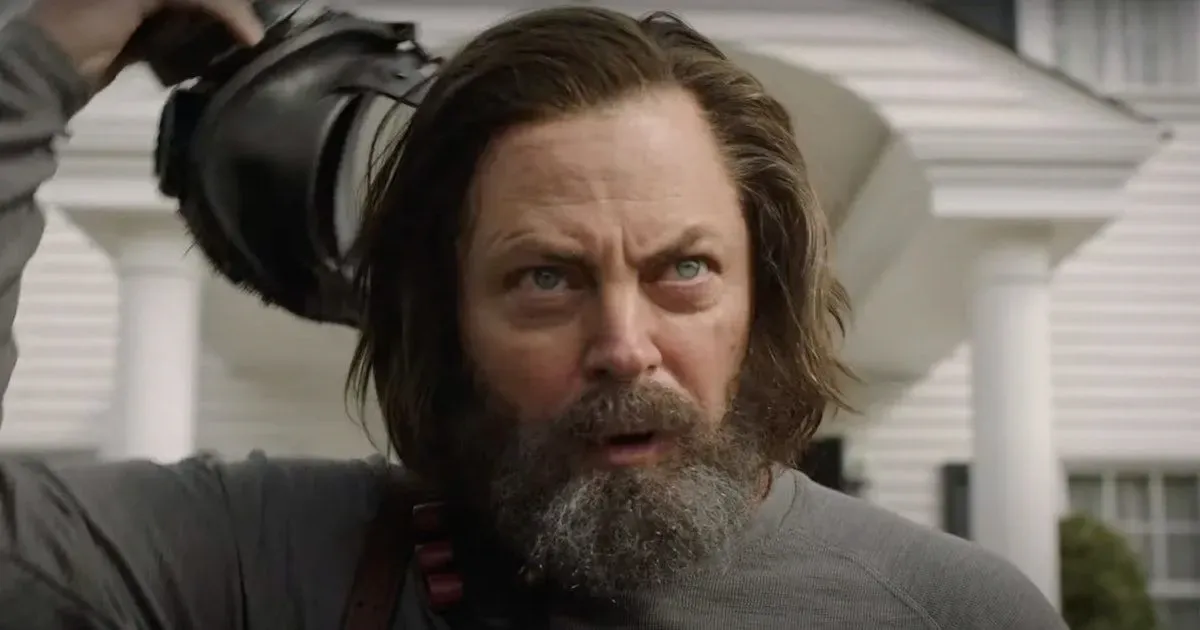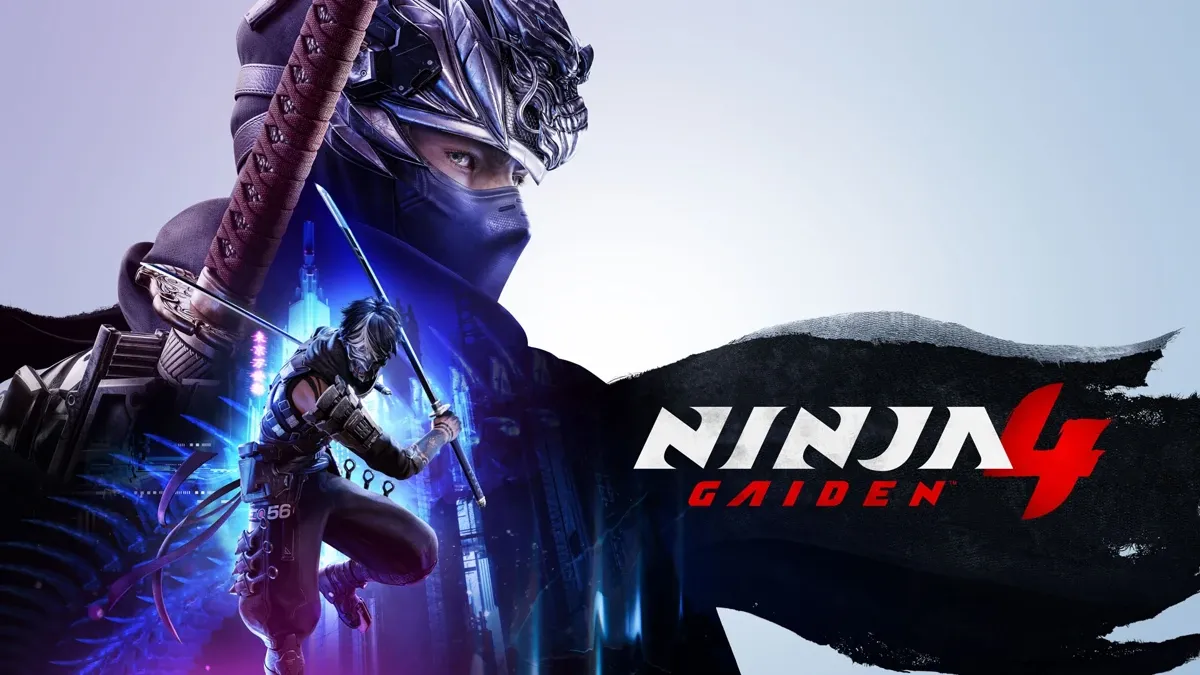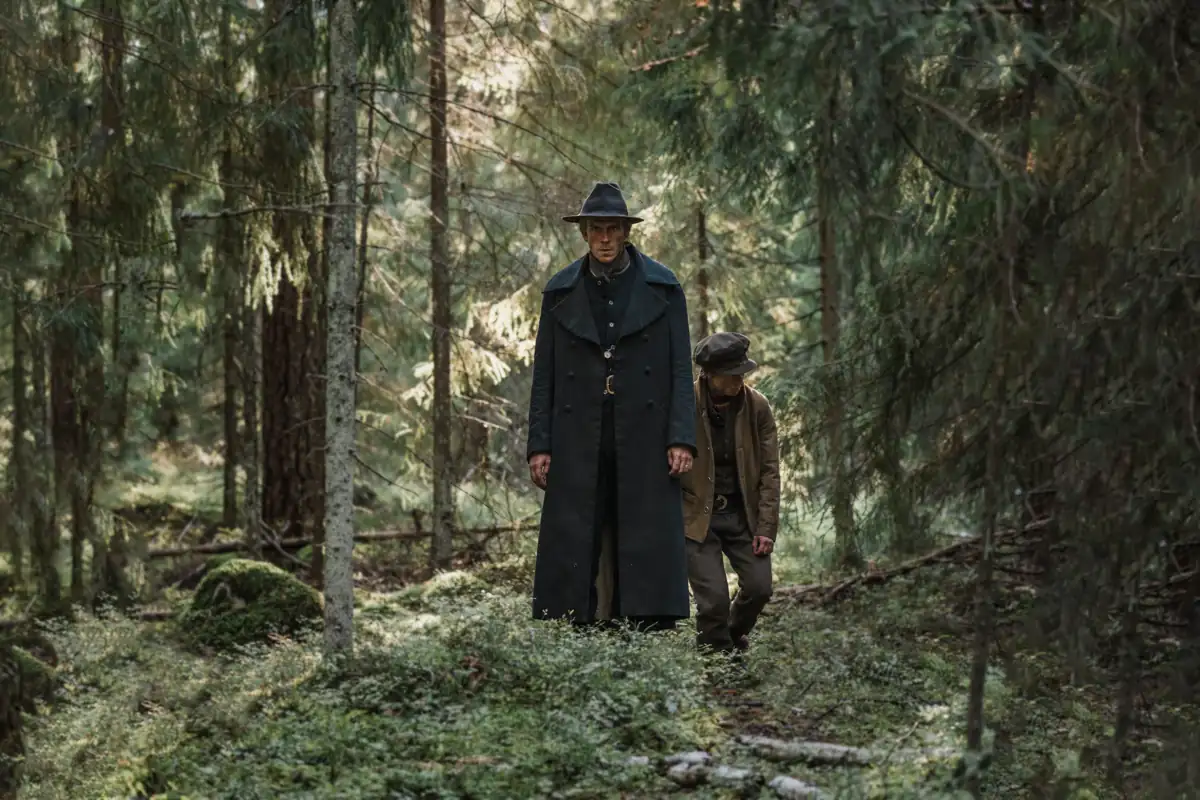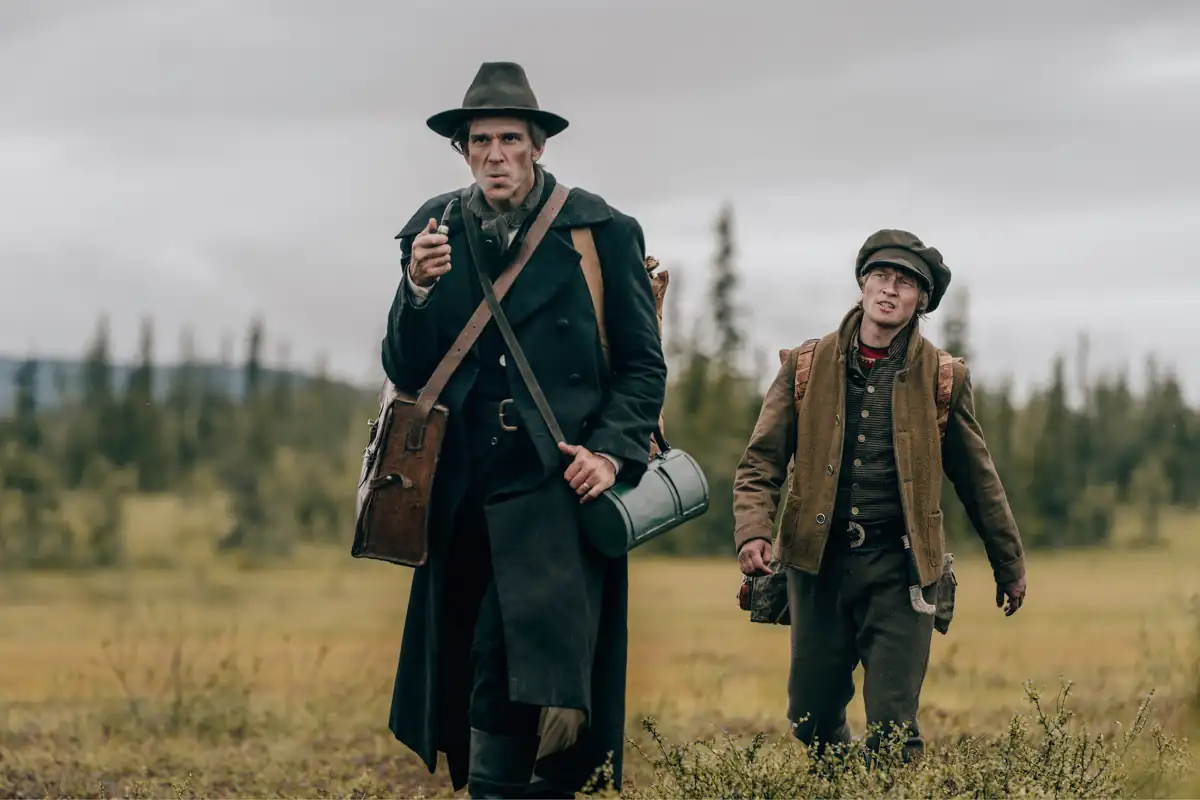I got a chance to speak with Nick Offerman and Murray Bartlett about their part in The Last of Us and the spectacular third episode, which has taken the world by storm.
[This interview is edited and condensed for clarity.]
One of the things that struck me with this episode, in particular, is how it softens the stereotypical trope of the hardened, ultra-masculine survivor. Was that something you discussed with the showrunners as you came on board, or was it already in place?
Nick Offerman: Most of that conversation went on in the brains of Neil Druckman and Craig Mazin and came into that brilliant script we received. So, there wasn’t a lot more discussion than “this is great”.
[He guffaws in that Nick Offerman way.]
You know, “let’s not try to screw it up”.
I love the unlikely coupling of this storyline. We’ve seen this story countless times. We’ve seen these characters in different versions, so we think we know them. Yet they come together. Then there’s a dinner of rabbit, a sing-a-long, and you think; holy shit. Humans are full of infinite possibilities, and how gorgeous is that?
One of my favorite things about this job in general is presenting that story to the world as a possibility. As a softening of that trope, as you say. I’m often accused of masculinity, which I’m always surprised by. Because I feel like a big giggling, dancing, tiny rabbit. So, I always answer why gender things? If I use tools or sow a button or bake a cupcake, why can’t I or anybody love those things? To be a part of continuing to erode those old-fashioned ideas and conventions, I believe that’s why we got into this business. We heard the call of Aristotle and here we are.
Murray Bartlett: I completely agree. Reading a relationship that exists outside of stereotype, especially a relationship that has tendered to veer into a stereotype, to see that feel fresh and breaking through stereotypes, it’s very refreshing. It’s not new to try and dismantle them, but this story and the way it develops felt so surprising to me in such a great way.
I think that speaks to the genius of the writing and casting an actor that is Nick – someone who can bring this masculinity that he speaks of, and not be afraid to show a whole person. That we’re not just one aspect. We’re a complex variety of aspects. Including vulnerability. To have an actor who’s willing to go into that vulnerability really makes it sing.
Does either of you have any skills applicable to the apocalypse?
NO: It’s a funny thing, I am a woodworker and I love making things, but I’ve spent most of my adult life working as an entertainer, or one sort or another, or as a writer, so the people who work at my wood shop are better than me because they’re training all the time.
It’s interesting how the audience conflates you on screen swinging a hammer with mastery. When I got on the set, there are a lot of things that I can do, and skills that I have, but there are many others that I’m ignorant of. We had the crew ask me questions about diesel generators and welding, and I’d be at a loss for words.
There are holes in my knowledge. I love that I can never be done learning the way the works. To be part of that, to convey that in this story, among the other ways we affect the audience, I hope it inspires people to take care of themselves instead of relying on government infrastructure.
MB: One of the reasons I became an actor was to pretend I was good at all things I wasn’t good at. I’m not particularly good at practical things.
NO: Sorry, I just got distracted imagining you with a set of tool bags. I think you’d be very effective playing a carpenter.
[They both break out into a fit of giggles.]
MB: I’m not practical, but when things are thrown in my lap as an actor, I’m determined to make it look like I know what I’m doing. So if I did apply myself to woodworking, I feel like I’d be good at it.
I’m not wildly uncoordinated, I just don’t have developed skills in that area. But when I get a character doing something like that, I spend all my free time practicing it because I want to make it look like I’m good at it.
There are big differences between the characters in the game and the show, did that allow you the freedom to make your interpretations?
MB: For myself, I’m not a gamer. I have friends who have the game and I relied on the experts, Neil and Craig, who both know it back to front. That and the extraordinary script that fleshed out the characters while making sense within the context of the show with great beauty. I trusted that divergence was respectful and smart. It tailors it in a way that expands and fits this world. I think they did that beautifully.
NO: I agree. We are but their puppets. It’s a funny thing about this day and age with the advent of the internet where everyone can make their opinion available to some extent or other. Before that, were I to write a book or perform on a show, if you hated it, I didn’t have to know about that. If I see something that’s terrible or something I dislike, I turn it off, or I won’t read it. But I have to assume that, generally, people are doing their best.
Craig and Neil took this source material and turned it gorgeously, as far as we can tell, into television. People will possibly very vociferously dislike it because people don’t like change. If someone pronounces the names in LOTR differently than I’ve decided how they sounded the first time I heard them, I will fistfight you, and then I’ll calm down and say, hang on, why can’t all these things be true? So I say to anyone who dislikes the adaptation, why can’t we all just get along?
A part of this personal utopia exists in a melancholy place. The world outside is dying, and your little world is about love and death. Is this paradise or another kind of hell?
NO: Woyzeck springs to mind. Bill hates people. He has a lot of pain. So, in a lot of ways, and perhaps those ways are superficial, he’s thanking God that all the people are gone. I can be happy with my systems and my intricate survival techniques. But I think we’ve learned that once you crack the hard outer shell, the center of it is a seed of vulnerability. He’s a human being, he wants to love and be loved.
[Their world] probably looks wonderful on the surface. It has everything – except anyone loving each other. So, while it is a beautiful utopia in a lot of ways, it can be likened to hell. Because we learn the human lesson that it doesn’t matter the circumstance if there is nobody to share it with. Nobody to take care of, and nobody to take care of you. It’s a Dante-esque observation; is this heaven? Yes, with a dash of hell.
MB: I think it also isn’t black and white. It’s not utopia or hell. The episode speaks of possibility amid hell. What can you find? It explores that which is not perfect, even if it is utopian. But it looks at the definition of utopia in perception. It’s coupled with hard answers. It’s hopeful that you can find a connection. Utopia is to be found in these guys together. That connection. But it’s by no means uncomplicated. It’s full of all these different colors. Things that don’t work.
Horror and action haven’t always treated queer characters with respect. How do you hope this impacts the genre moving forward?
MB: I think it’s beautifully surprising and unexpected in the genre. Not only because it’s a queer relationship, but because it doesn’t even entertain the usual stereotypes. I have a great love for this episode, so it’s hard to not talk about it in grand terms. But in terms of queer relationships in film and TV, I think this is unique because it avoids those stereotypes. We as actors hope to break through stereotypes, and hopefully, people think of things differently and see that we’re all connected and have the same qualities.
I think the way Craig wrote this episode takes us there, in a way. I’m really excited about this. You’re always hopefully trying to burst through doors and expand horizons. I hope that this does something to make that change.
NO: I have a wood shop here in Los Angeles, we have five employees, four of whom are women. A very diverse group in every way. But the first woman who ran my shop was a small, powerful lesbian, who was three times the worker that I am. And people still responded with surprise, because of the stereotypes. “Oh, females, using tools?” It’s so dumb.
When I mention the wood shop, people expect something for dads in a garage. They’re tired and old-fashioned gendered stereotypes. So because I’m often accused of masculinity or doing these things that are a trope that veers into toxic masculinity, I love when we can promote with our storytelling that girls can swing a hammer and men can bake cookies and every combination and permutation between them.
Especially with action and horror, which are populist genres, the more we can break down those walls, the better. It’s a much more medicinal thing we can do with our living than just telling a ripping yarn.
How do you identify with the characters? Do you think you’d react the same way in an apocalypse?
NO: I do love to know how things work, and I like to be prepared. To a much lesser extent, our house in LA is ready for an earthquake, and I love that I don’t have to call someone to change the tires on my vehicle. But I come from a loving family, so I’m not as isolated as Bill. But if I were in his shoes, I would do the same things as he does, but I’d go and find other people. I’m aware of how many hands make light work. I don’t want to go through things alone. I own a mirror; I’d rather have someone like Frank greet me on a new day than my crusty visage.
MB: I’m like Frank in the way that I love making connections and having loving relationships with people. I really relate to that. I’d seek that out as he does. Eventually he finds himself alone on the road because the people he was with were picked off. But I think I would have tried to find another group. I can’t imagine doing great by myself in that world. I can be practical when need be, but I do enjoy the company. So I would be looking for the pack.













